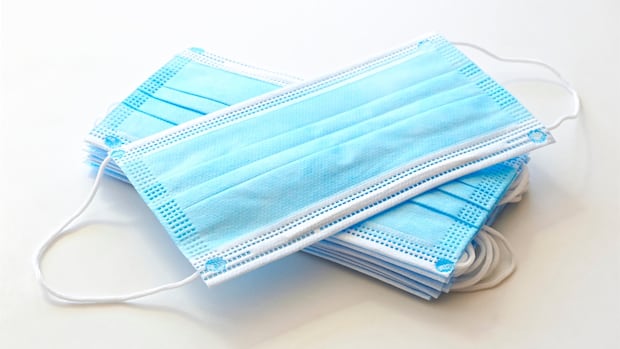Horizon Health Network has reintroduced mandatory masking in all patient-facing clinical areas in all of its facilities, starting Wednesday, citing a rise in respiratory virus activity.
All health-care workers, patients, social visitors, and designated support people will be required to wear a medical grade face mask, also known as a surgical or procedure mask, at all times in all inpatient units, outpatient/ambulatory care clinics and emergency departments, and any other clinical setting, including waiting areas.
“With this upward trend, and knowing this time of year historically leads to further increase of viral transmission, Horizon is taking a proactive and precautionary measure,” the regional health authority said in a news release Tuesday.
The release did not specify which respiratory illnesses have increased and Horizon officials did not immediately respond to a request for comment.
But there are currently COVID-19 outbreaks at the Moncton Hospital, in the geriatrics and chronic care units, and at the Saint John Regional Hospital, in the transitional care unit, according to Horizon’s website.
Masking will not be required in non-clinical areas, such as lobbies, hallways, or cafeterias, Horizon said.
Medical grade face masks are available in all Horizon facilities and signage will be in place to help people understand when masks are required, it said.
Vitalité Health Network has not changed its masking policy, a spokesperson told CBC News.
It encourages patients, visitors, and employees to wear masks on a voluntary basis, while masking is mandatory on outbreak units, according to the unsigned emailed statement.
“We closely monitor respiratory virus activity and continually evaluate the need to reassess health measures to protect everyone’s health,” the spokesperson said. Vitalité will inform the public of any “significant changes,” they added.
Other measures to reduce transmission in place
Meanwhile, Horizon said other practices to help reduce the transmission of illness remain in place in its facilities.
For example, patients, social visitors, and designated support people are asked to self-screen for symptoms of illness before entering a Horizon facility.
“Symptomatic patients may attend their appointment as planned, but they must clean their hands, put on a mask, and inform their health-care team that they have not passed self-screening,” the release said.
Social visitors and designated support people who have tested positive or have new symptoms are not allowed to enter.
In addition, continuous masking is required on outbreak units and no social visitors are allowed.
N.B. reports 26 COVID cases, 1 RSV case
The Department of Health is scheduled to release an updated Respiratory Watch report on Wednesday.
As of the last report, which covered June 29 to July 26, there were 26 cases of COVID-19 confirmed and one COVID outbreak declared in a nursing home.
There were no COVID hospitalizations, intensive care unit admissions or deaths during that three-week period.
One case of respiratory syncytial virus, or RSV, was reported, and no cases of influenza had been found, according to the report.
New Brunswick launched the spring COVID-19 vaccination campaign for people at increased risk of severe illness from the virus on April 7.
Since then, about 18,300 doses have been administered provincewide to those who are eligible, Department of Health records show. That includes people aged 65 or older, adult residents of long-term care homes and other group-living settings for seniors, and people six months or older who are moderately to severely immunocompromised because of underlying conditions or treatment.
Roughly 3,000 people have received the flu shot in the past five months.
The province typically launches the fall COVID-19 and flu vaccination campaign for residents aged six months and older in mid-October.







